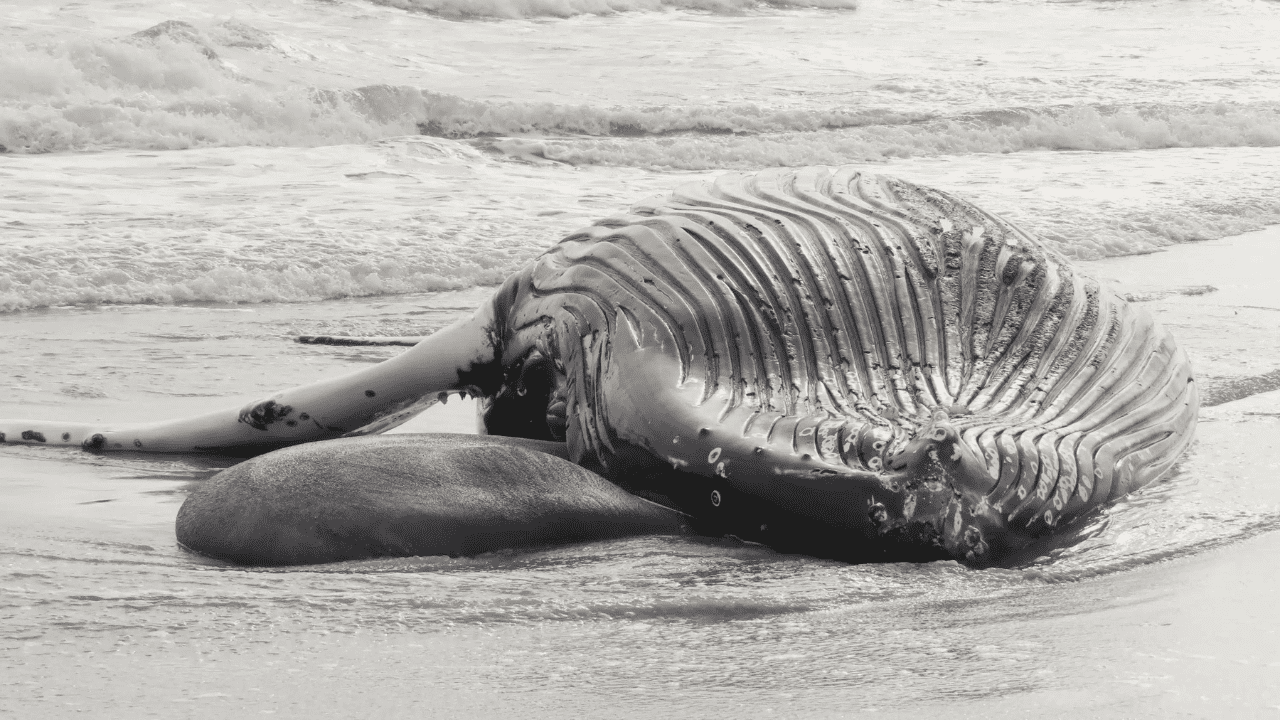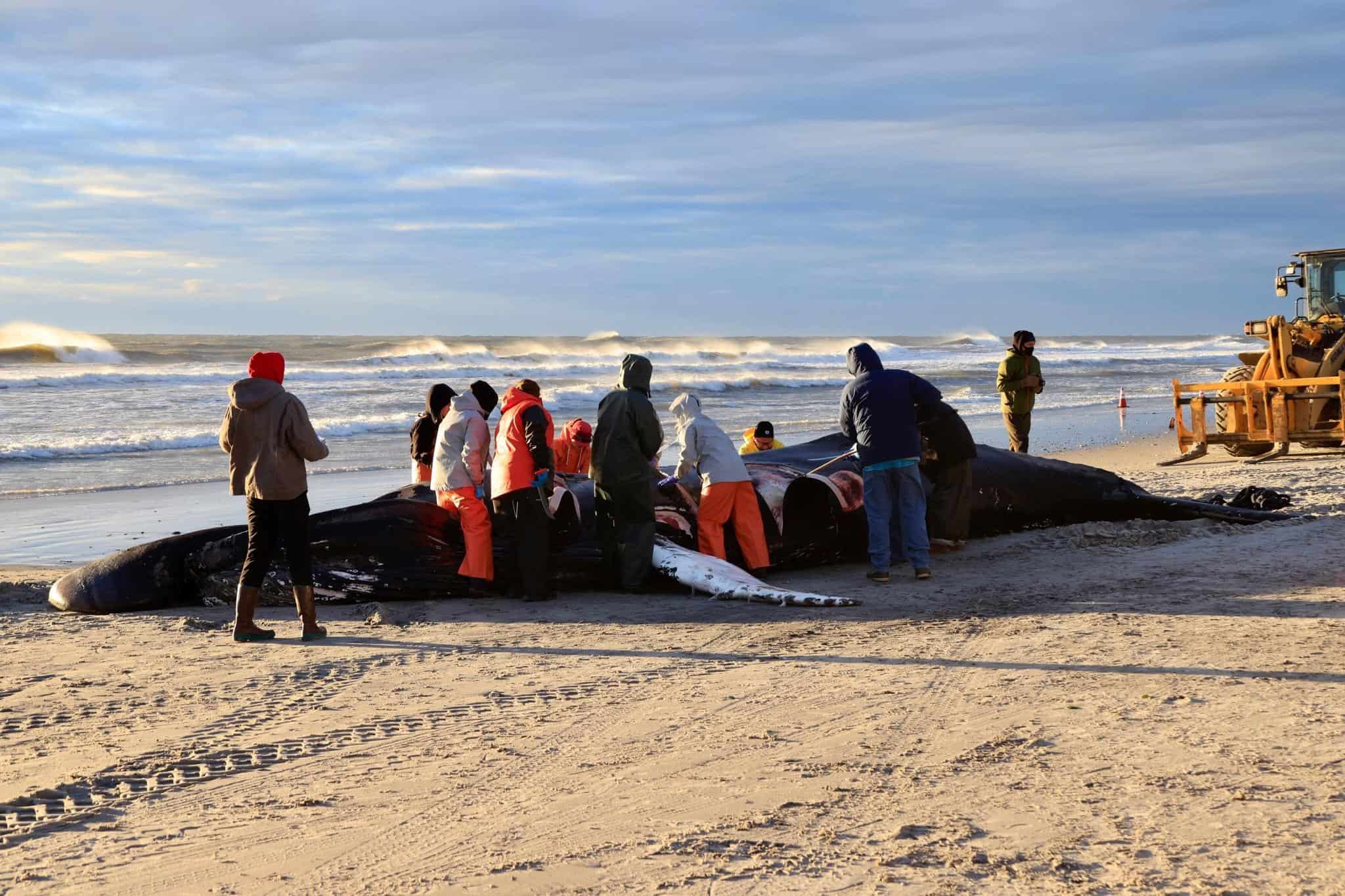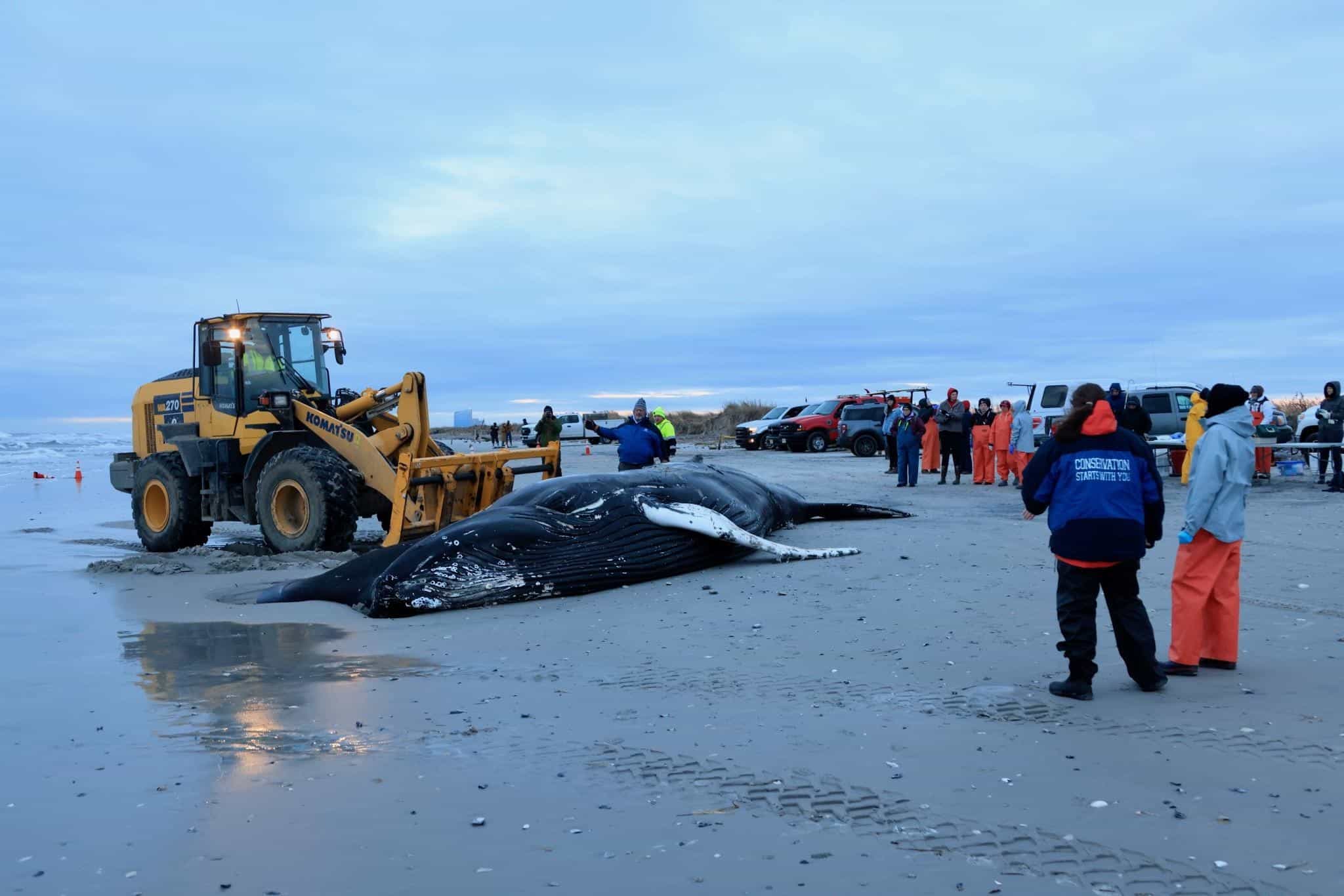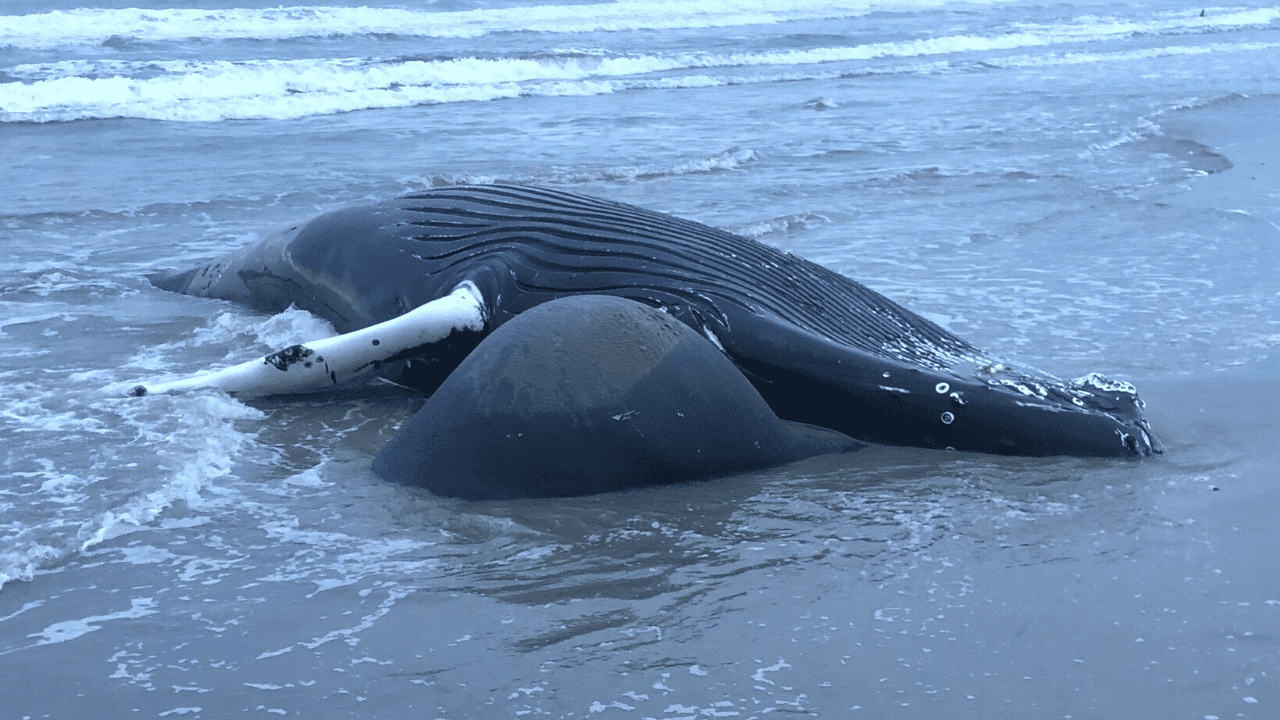Federal environmental and energy officials have denied that the offshore wind power industry is killing whales in the northeastern United States. In a briefing for reporters, the National Oceanographic and Atmospheric Administration (NOAA) and the Bureau of Ocean Energy Management (BOEM) addressed the recent spate of whale deaths on the East Coast that some groups suspect may have been caused by site preparation work for offshore wind farms.
NOAA reported that there have been 14 whale strandings on the East Coast since December 1st, including humpback whales and sperm whales, which are an endangered species.

Feds Say Offshore Wind Not To Blame In Whale Deaths
This follows the recent death of a humpback whale that washed ashore on Assateague Island, Maryland, and the deaths of seven whales in New Jersey and New York in a little over a month.
NOAA officials stated that they have been studying the phenomenon of humpback whales dying at elevated rates along the East Coast since January 2016. During that period, 178 of the animals washed ashore dead between Maine and Florida.
Post-mortem examinations were able to be done on about half the animals, and of those, 40% showed evidence of “human interaction,” such as entanglement with fishing gear or being struck by vessels, according to an NOAA spokesperson. In other cases, the animals were too decomposed for an effective investigation.

7th New Jersey Whale Struck By Vessel
However, authorities have stated that in no case has a whale been proven to have been killed by offshore wind activity. Benjamin Laws, deputy chief for permits and conservation with NOAA Fisheries Office of Protected Resources, said, “I want to be unambiguous: There is no information supporting that any of the equipment used in support of offshore wind development could directly lead to the death of a whale. There are no known connections between any offshore wind activities and any whale strandings.”
The issue has become contentious since early last week when Clean Ocean Action, one of New Jersey’s leading coastal environmental groups, held a press conference in Atlantic City with resident groups and opponents of offshore wind to call on President Biden to investigate the seven dead whales discovered in New Jersey and New York since early December.

Since then, other environmental groups and federal agencies have pushed back, saying there is nothing to link the deaths with survey work for offshore wind farms.
On Tuesday, many of New Jersey’s main environmental groups held a press conference to support offshore wind and decry what they called the “false narrative” that offshore wind preparation is killing whales. This prompted Clean Ocean Action to renew its call for a temporary moratorium on ocean floor exploration.

7th Whale Washes Up Dead At Jersey Shore
Brian Hooker, leader of a biology team with BOEM’s Office of Renewable Energy Programs, stated that the type of surveying work being done now off New Jersey and New York is not known to seriously harm whales.
The work is examining the ocean floor for the suitability of foundations for wind turbines and for laying cables between them and the shoreline. Such work involves multi-beam sound equipment, side-scan sonar, and so-called “cone penetration testing” in which a drill on top of a vessel presses a metal rod into the sea floor to test the friction and resistance of the soil.
None of these methods has been shown to seriously injure whales, Hooker said, but they do have the potential to affect the animals’ behavior.
Under federal regulations, vessels and equipment used in support of offshore wind development must be designed and operated in a way that avoids or minimizes potential impacts on marine mammals, such as whales. Additionally, federal agencies are required.
Check out these other videos and articles below.
